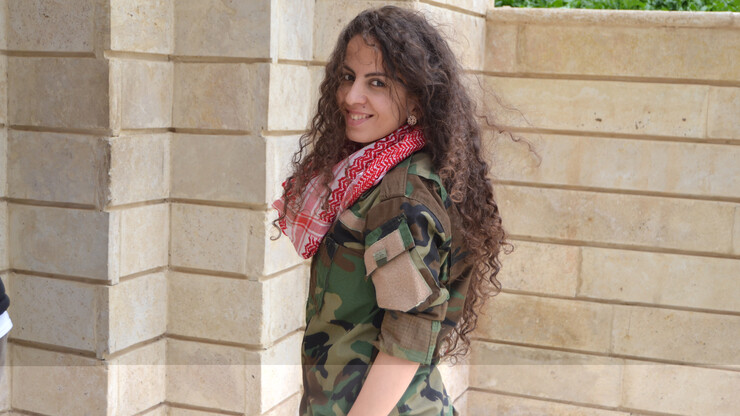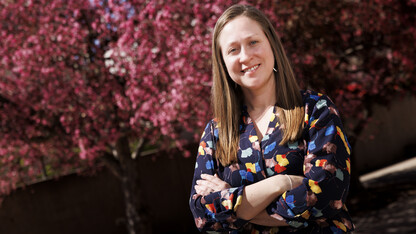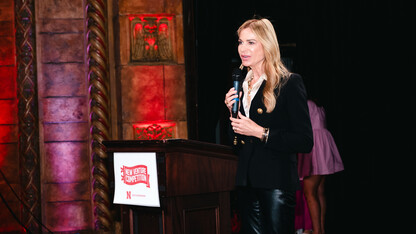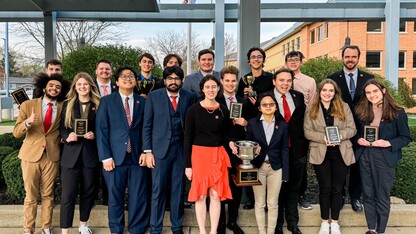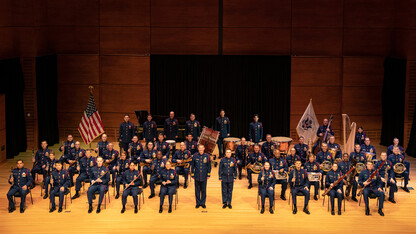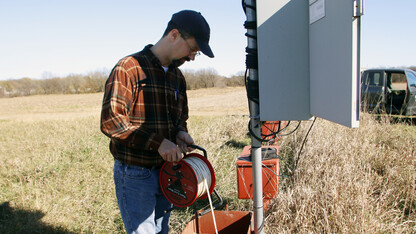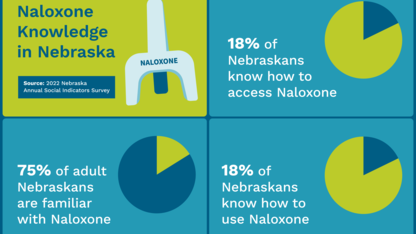· 5 min read
Refugee camp experiences help Shiekh find her calling

While Vianne Sheikh’s life as a University of Nebraska–Lincoln student may seem normal now, she’s constantly thinking of the drastically different world she once lived in.
It was 2014, and Sheikh was working at one of the 18 refugee camps scattered across Iraq. Her hometown of Sinjar had been decimated by ISIS, causing her entire family to go into hiding for weeks before making a risky escape. They were counted among the lucky as thousands were killed.
The attacks by ISIS on the Yazidi people in northern Iraq have since been declared by the United Nations as an act of genocide.
“By a miracle, we all survived. I don’t know how. Thousands of people died, lost their life, got kidnapped…” Sheikh said. “Some of them were my friends.”
After finding safety in the refugee camps, Sheikh began volunteering as a social worker with Yazda, a global aid organization. Most days she would gather supplies and take them from camp to camp, or help refugees with basic medical care. While every day was memorable in a heart-wrenching way, the moments Sheikh can’t seem to shake from her mind are the interactions she shared with her fellow women refugees.
When ISIS captured cities and regions, many women were taken captive, disconnected from their families, enslaved and often raped and tortured.
Before ISIS stormed the region, Sheikh had been studying chemistry. But after experiencing the grief that followed the attacks along with hearing the stories of the survivors, she changed course. She began working on a documentary to compile the survivor stories. Now, as an emerging media arts student at the University of Nebraska–Lincoln, Sheikh is continuing to elevate those voices.
“These women will remain part of my identity,” Sheikh said. “Their story always will be with me.”
Bittersweet journey
Sheikh credits the safety of Lincoln for strengthening her memories from the refugee camps. While she’s settled down and found a life in Lincoln, there were moments where coming to the United States didn’t even seem possible.
Sheikh first came to the U.S. for the United Nations Goodwill Ambassador ceremony of Nadia Murad. Murad is a Yazidi woman who was once held captive by ISIS. After her escape she became an activist and has devoted her life to helping other victims of human trafficking and abuse. In 2008, Murad was awarded a joint Nobel Peace Prize with Denis Mukwege.
Sheikh was invited to the ceremony through her work as a social worker and witness to the tragedies. She accompanied two survivors on the trip and took care of them on the long journey from Kurdistan to New York City. That was late 2016 — just a few months before a U.S. executive order limiting travel from Middle Eastern nations went into effect.
When Sheikh returned home from New York, she learned her family had received a call from the International Organization for Migration and that they were invited to interview for migration approval to the United States. Her family was approved in 2017 — but their celebratory moment came with another hurdle.
Due to the impacts of the executive order, Sheikh’s flight to the U.S. was canceled three times. The fourth time was the charm, as she and her sister were able to reach the states.
Sheikh arrived in early February 2017 and was able to reconnect with her brother, who had already emigrated after working as a translator for U.S. troops. Her mother and other sisters were set to meet them there within a few weeks. That never happened.
“They were returned from the airport as a result of the ban,” Sheikh said. “And it has been four years now and I am still waiting to see my mom and two sisters here.”
Life in Lincoln inspires action
With her memories growing more vivid each day, Sheikh knew she needed a way to express her complex emotions.
While at the camps Sheikh was a part of a project that compiled a documentary on the women survivors of ISIS captivity. She would talk with them about their lives before, during and after ISIS — with some of the conversations lasting as long as seven hours.
“I tried to, you know, help them with anything I can — just at least listening to them…because there was nobody even to listen to them,” she said. “They lost their family. They lost everything.”
This life-changing experience led Sheikh to discover her spark for storytelling.
Since settling in Lincoln, she has used multiple media — film, screenwriting and photography — to share what these women have experienced. One of her projects, “Narrow Sense,” was recently featured as part of the Sheldon Museum of Art as a part of their Person of Interest symposium.
For Sheikh, storytelling is about finding justice. She saw and felt the pain of genocide survivors, and she can’t stand to think that their voices might one day fade away.
“As a woman and human being I couldn’t bear standing there and not do anything.” Sheikh said.

